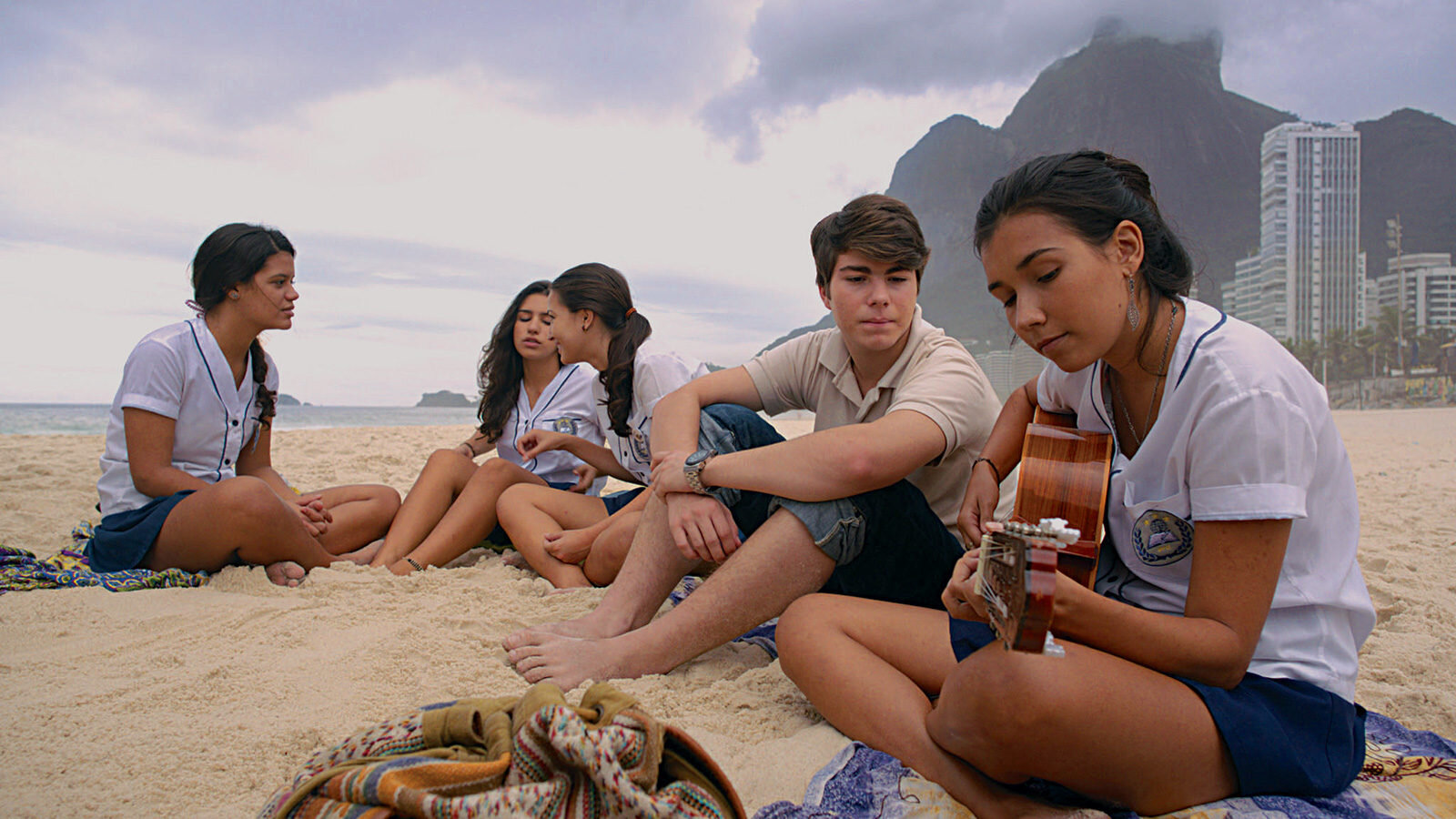Film Review: ‘Casa Grande’ (2014) by Fellipe Barbosa
A text by Luz Hitters
August 2021
"Sooner or later, things run out."
"We are running out of everything in this house."
"Especially values."
Directed by Fellipe Barbosa, 'Casa Grande' (2014) is a movie that, behind its simple script and unpretentious manufacture, explores layers of complex themes, such as family dynamics and coming of age experiences. Set in Rio de Janeiro, the story follows Jean, a seventeen-year-old who is attending his last year at private school in São Bento. Jean is the oldest sibling in a family of four. He is therefore confronting the challenges such an age presents, battling with issues ranging from peer acceptance to choosing a professional path and entering into the promised land of sex and pleasure. As any teenager, even more so as the oldest child, these conflicts are accompanied by the dethroning of parents as role models and figures of authority, accepting parental flaws and often finding oneself through opposition.
For Jean, a search for identity is accentuated by the gradual but steady shift in the family's economic status, an aspect that has characterised his upbringing, external expectations and, ultimately, his character. Jean's father is a hedge-fund manager who quietly has lead his family into bankruptcy. In doing so, the absurd asymmetry between the working class and his privilege also begins to fade. Jean finds himself taking the bus to school while his mother turns into a direct cosmetics saleswoman. The customary dynamics of the upper class are quickly subverted, leaving the family members in the uncomfortable position of finding themselves beyond connotations they thought immovable.
The movie makes direct observations regarding the racial imbalance in Brasil. The family initially relies on having three people working for them, delegating driving, cleaning, cooking and any sort of household tasks. Jean's driver gives him advice on picking up women, while the long-time housekeeper fills a role of a temporary mom. In addition, Jean finds distraction, even some sort of solace, in his flirtatious maid, Rita, an older woman who ferociously embraces her sexuality. Every night he feels lonely, Jean escapes into Rita's room, where the maid smokes cigarettes and shares steamy stories. This dynamic, of course, is kept secret not only due to the unprofessional character but primarily because of the class discrepancy. However, as the movie develops, these distinctive barriers begin to dissolve.
With the loss of status comes freedom and rebellion. Words lack value, and 'knowing better' is worthless. The father figure falls from the leading role, the protector, into another mortal who makes mistakes. He is also presented as a shallow man who lives for the external gaze. For this same reason, Jean wants to strongly and urgently separate himself from these connotations. As such, he begins to oppose longstanding rules and the implicit delimitation of who one can date or not. Looking for answers through love, Jean establishes a relationship with Luiza, a girl from a mixed background he meets on the bus. She openly expresses her political standpoint regarding racial and economic inequality, an act Jean's parents despise, and he finds himself in stuck in between.
The film also shows that examples are way stronger than words. A bit like in Vittorio de Sica's Bicycle Thieves (1948), material loss whirlwinds into the loss of dignity. As bankruptcy becomes present, values become absent. Jeans' sister steals from her parent's savings to sustain her personal expenses and even blackmails Jean. He, on the other hand, runs away from his debts. Ironically, this false sense of superiority, the same characteristics that supposedly differentiated the family from the average population, is quickly overthrown.
The most interesting aspect of this movie, in my opinion, is that the fear is many times worse than the consequences. 'Casa Grande' shows the triviality of differentiation and the wasted efforts invested in distinction. It makes us question what is valuable and what is not. What aspects of our life determine our identity, and which ones actually distract us from finding it. Overall, Felipe Barbosa's work invites us to see that even if circumstances make us, in the end, our actions determine who we are.



